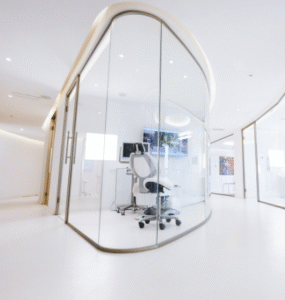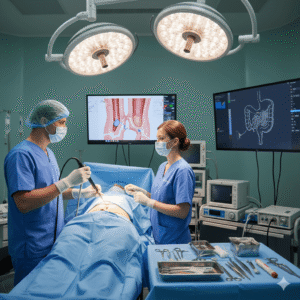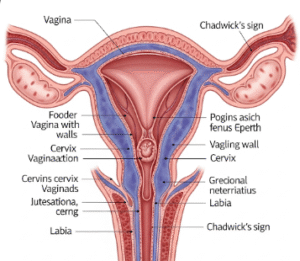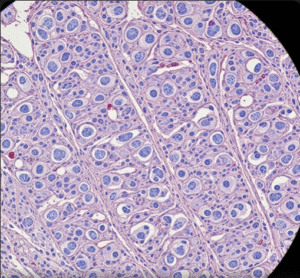Overview
Kidney pain is discomfort or pain felt in the area of the lower back, just below the rib cage, on either side of the spine. It can be sharp, dull, or cramping, depending on the underlying cause. Kidney pain is often associated with urinary tract infections (UTIs), kidney stones, or kidney disease, but can also be a symptom of systemic conditions such as hydronephrosis or polycystic kidney disease.
In Korea, urology clinics and hospitals provide comprehensive evaluation and treatment for kidney pain. With advanced imaging, laboratory testing, and minimally invasive procedures, healthcare providers can accurately diagnose and treat the underlying causes, relieving pain and preventing long-term kidney damage.
Key Facts
- ➔ Kidney pain is typically felt in the flank area, just below the ribs on the back.
- ➔ Common causes include kidney stones, infections, trauma, or chronic kidney disease.
- ➔ Pain may radiate to the abdomen, groin, or back depending on the condition.
- ➔ Other symptoms often accompany kidney pain, such as fever, nausea, or urinary changes.
- ➔ Timely diagnosis and treatment are essential to prevent permanent kidney damage.
What is Kidney Pain?
Kidney pain, also known as renal pain, arises from irritation or obstruction in the kidney or urinary tract. Unlike general back pain, kidney pain is located deeper and higher in the back, usually under the rib cage.
- ➔ Nature of pain: Can be dull and aching, or sharp and severe in the case of kidney stones.
- ➔ Associated structures: Pain may involve the kidneys, ureters, bladder, or surrounding tissues.
- ➔ Clinical significance: Kidney pain is a warning sign of potential renal or urinary problems and should prompt evaluation.
What Symptoms Are Related To
Kidney pain is often accompanied by other symptoms that help indicate the underlying cause:
- ➔ Fever and chills (suggesting infection)
- ➔ Nausea or vomiting
- ➔ Blood in urine (hematuria)
- ➔ Frequent or painful urination
- ➔ Abdominal or groin pain
- ➔ Swelling of the legs or around the eyes (edema in kidney disease)
- ➔ Fatigue and weakness in chronic conditions
Recognizing these associated symptoms aids clinicians in differentiating urinary tract infections, stones, or chronic kidney disease.
What Causes / Possible Causes
Kidney pain can result from a variety of causes, including:
- ➔ Kidney stones: Hard deposits of minerals causing sharp, severe flank pain.
- ➔ Urinary tract infections (UTIs): Infection ascending to the kidneys (pyelonephritis) can cause pain, fever, and urinary changes.
- ➔ Polycystic kidney disease: Genetic disorder leading to multiple cysts and chronic flank pain.
- ➔ Hydronephrosis: Swelling of the kidney due to obstruction in the urinary tract.
- ➔ Kidney trauma: Injury to the kidneys from accidents or sports.
- ➔ Kidney tumors or cysts: Benign or malignant growths can cause persistent flank pain.
- ➔ Other systemic causes: Conditions like diabetes or hypertension may indirectly cause kidney discomfort.
Understanding the cause is essential for effective treatment and pain relief.
When Should I See My Doctor
Seek prompt medical evaluation if you experience:
- ➔ Severe, sudden, or persistent flank pain
- ➔ Fever, chills, or signs of infection
- ➔ Blood in urine or cloudy urine with a strong odor
- ➔ Nausea, vomiting, or inability to urinate
- ➔ History of kidney stones or chronic kidney disease
- ➔ Swelling of legs, feet, or face
- ➔ High blood pressure associated with kidney problems
Timely assessment ensures early diagnosis and prevents long-term renal damage.
Care and Treatment
Treatment of kidney pain focuses on addressing the underlying cause:
- ➔ Kidney stones: Pain management, hydration, and sometimes procedures like lithotripsy or surgical removal.
- ➔ Urinary tract infections: Antibiotics, adequate fluid intake, and monitoring of kidney function.
- ➔ Chronic kidney disease: Blood pressure control, lifestyle modifications, and medications to preserve kidney function.
- ➔ Hydronephrosis: Relief of obstruction through surgery or catheterization.
- ➔ Pain management: Analgesics and anti-inflammatory medications for acute discomfort.
- ➔ Lifestyle and dietary adjustments: Reducing salt, maintaining hydration, and managing risk factors like diabetes.
Appropriate care and follow-up prevent complications such as kidney failure, recurrent infections, or chronic pain.
Treatment Options in Korea
Korean urology and nephrology centers provide state-of-the-art care for kidney pain and related disorders:
- ➔ Diagnostic imaging: Ultrasound, CT scan, or MRI to identify stones, obstruction, or structural abnormalities.
- ➔ Laboratory tests: Blood tests, urine analysis, and kidney function tests to guide treatment.
- ➔ Minimally invasive procedures: Lithotripsy, ureteroscopy, or percutaneous nephrolithotomy for kidney stones.
- ➔ Medication management: Antibiotics for infections, analgesics for pain, and medications to manage chronic kidney disease.
- ➔ Multidisciplinary care: Collaboration between urologists, nephrologists, and dietitians for optimal outcomes.
- ➔ Advanced surgical interventions: For tumors, cysts, or severe obstructions when needed.
Leading hospitals such as Seoul National University Hospital, Asan Medical Center, and Samsung Medical Center offer personalized treatment plans to ensure effective management, relief of kidney pain, and preservation of kidney function.
In Summary: Kidney pain is a sign of potential urinary or renal disorders, including stones, infections, or chronic kidney disease. Early recognition, accurate diagnosis, and advanced treatment in Korea can relieve pain, treat underlying conditions, and prevent serious complications.
- ➔ Key Takeaway: Persistent or severe kidney pain requires prompt medical attention.
- ➔ Action Point: Consult a urologist or nephrologist for comprehensive assessment and personalized care.













